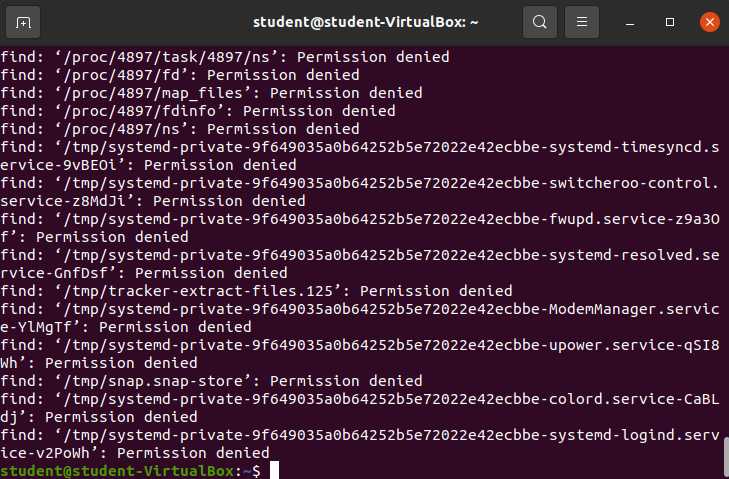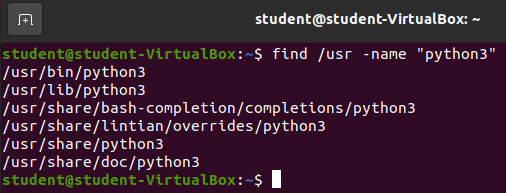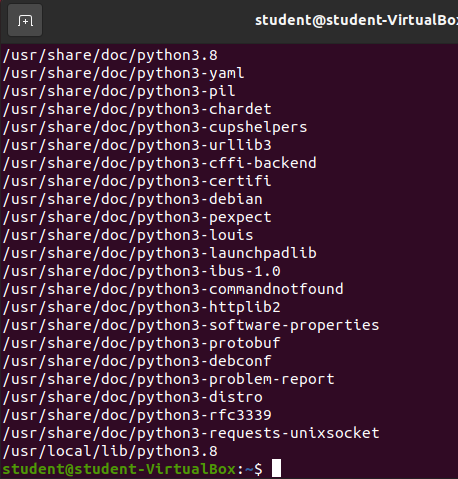Finding Files
Finding Files
If you haven’t noticed by now, Linux/GNU is a file based operating system. You can actively look at (and in many cases modify or delete) almost any of the files that make Linux work. However having such a huge number of files can make finding the files you need a difficult task.
Luckily there are many tools that help us find the files we are looking for. One of which is the find command.
The find command takes two arguments: a directory to search, and a search pattern (in this class the pattern will predominately be a filename).
Let’s search our home directory for any files named myname.txt.
find ~/ -name "myname.txt"
The command found one matching file with the absolute path of /home/student/myname.txt.
Note
We did provide one option to the find command called -name. We were telling the find command that the provided pattern only needs to match the filename instead of all parts of the filepath. This is a nice option to include as it will not match if any directories matched our pattern.
Finding Files in Directories Above Home
As you are continuing on your Linux/GNU learning journey you may learn about various tools found in the /bin, or interesting files in /etc or other locations outside of the /home directory. If you want to read these files, or learn about their locations you can use the find tool.
Let’s use find to find the python3 binaries starting at the root (/) directory.
find / -name "python3"
That was overwhelming! There are dozens of files that match "python3" just for filenames in our entire computer. Many of the files we do not even have permission to read which is why we are getting Permission denied errors.
Let’s run our find command again, but instead of starting at the root directory, let’s start at the /usr directory.
find /usr -name "python3"
This is definitely more manageable as we are only looking for files matching "python3" in the user directory.
Using Wildcards with find
In an earlier lesson we looked at /usr/bin/python3. However, there was also a /usr/bin/python3.8 in the same location. This file did not match our explicit pattern of "python3". However, we can use a Bash shell wildcard (*) to increase the amount of potential matches.
find /usr -name *"*python3*"
Another long list, but we do have at least read access on all of the results. Note how the find command matched any file name starting with "python3", but matched any text after that match. That’s the power of the Bash shell wildcard *.
In this list you should see both /usr/bin/python3 and /usr/bin/python3.8 near the top of the list, you will probably need to scroll up to see.
Bonus
The /usr directory contains data, binaries, and documentation that are available to general users of the computer. It’s a great place to search for tools that are available across users, but aren’t used by the kernel to perform it’s many tasks. You can learn more about the /usr directory at the LDP Linux Filesystem Hierarchy Documentation
.



